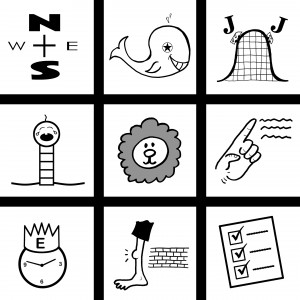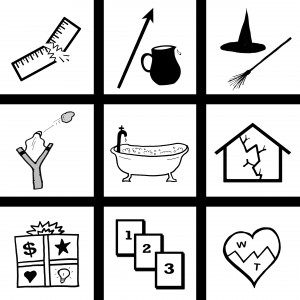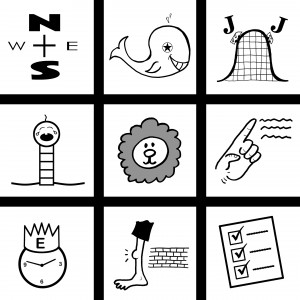 After Solomon’s death, his kingdom was divided into two halves: the northern kingdom and the southern kingdom. The northern kingdom was often called Israel, comprising eleven of the twelve tribes. The southern kingdom was often called Judah (King David’s family tribe). Both had a long history of running from God, some more so than others. Solomon’s son Reheboam had a critical leadership moment that offered the possibility of reuniting the divided kingdom.
After Solomon’s death, his kingdom was divided into two halves: the northern kingdom and the southern kingdom. The northern kingdom was often called Israel, comprising eleven of the twelve tribes. The southern kingdom was often called Judah (King David’s family tribe). Both had a long history of running from God, some more so than others. Solomon’s son Reheboam had a critical leadership moment that offered the possibility of reuniting the divided kingdom.
Jeroboam, king of the north, offered Reheboam the opportunity to

bring the tribes back under one reign. Reheboam’s father, Solomon, had turned into a tyrant later in his reign. His empire crashed as he continued expanding government projects, over-extending the finances of the empire, and demanding heavy taxes from the people. Jeroboam asked Solomon’s son, Reheboam, to “lighten the load, so the people would choose to serve their king.” Reheboam called a cabinet meeting with his own youthful advisors and his father’s “old guard” counselors. The old guard told Reheboam to increase liberty, lower the taxation, and stop the government spending. The young advisors told Reheboam to come back more harshly by increasing the control of his kingship. Reheboam returned to the people and said, “My little finger is bigger than my dad’s thigh. He whipped you with whips – I’ll whip you with scorpions.” A rebellion broke out. The kingdom revolted and stayed divided for the next several hundred years because the king chose coercion over liberty.
One of the evil kings of the north was a man named Ahab. He married a wicked woman named Jezebel and led the people to worship Baal, a god of sensuality. God eventually judged the northern kingdom by allowing them to see if “Baal” could deliver them from the Assyrian army. Baal, a stone statue and fertility god, was not successful in stopping the Assyrian army. During Ahab’s reign, Elijah constantly confronted and warned the king of coming consequences for his rebellion. Elijah confirmed a drought upon the land as God’s warning that He wanted His people’s devotion. Elijah eventually called for a contest between God and Baal. The 400 prophets of Baal met up on Mount Carmel to see which God was real. Elijah made an offering on a stone altar. The prophets of Baal did the same. Whichever god answered with fire was the one true God. The prophets of Baal danced, cut themselves, and prayed all day. Baal was silent. Elijah began mocking them, asking if Baal was “deaf or on vacation.” After their humiliation, Elijah covered his stone altar with water to make the claim clear. He asked God to send fire from the sky down upon this altar as a sign that He was real. Fire from heaven fell and consumed the sacrifice, the stone altar, and all the water. The people returned to God. Elijah was on a spiritual high until…
Elijah was threatened by Ahab’s wife Jezebel and fell into a depression. Elijah pulled away from people and withdrew in fear. God met with Elijah and offered him food, rest, and a partner named Elisha. God appeared to Elijah in a still small voice prompting him to stop isolating himself. God helped rid Elijah of his depression and suicidal thoughts. After Elijah’s ministry came to an end, Elisha had a great legacy of proclaiming God’s love and providing proof of His power. Elisha made a jar of oil multiply to provide for a poor woman, healed a man from leprosy, and performed many other miracles
The kingdom continued in rebellion and was eventually overthrown by the evil Assyrian Empire. (Assyria is the area known in modern times as Iran and Iraq.) Many of the people in the northern kingdom had members of their family killed and enslaved by the evil Assyrians. Those who remained in the homeland saw relatives and friends brutally tortured and carried off to Assyria’s capital city, Nineveh. Despite the evil and wickedness of Assyria, God

loved all His people and wanted them to “stop running and return to Him.” He came to the prophet Jonah and asked him to go to the capital city of the Assyrians and offer God’s forgiveness and leadership. Jonah refused. The fearful prophet hated the Assyrians and didn’t want God to forgive his enemies. Jonah didn’t want the capital city of Nineveh to hear about God’s love and mercy. So Jonah hopped on a ship and traveled to the westernmost part of the known world, away from Assyria. Jonah ran, but God ran after him. A storm struck the ocean and the shipmates threw Jonah overboard. God rescued Jonah, capturing him underwater in a great fish’s belly. Jonah remained inside the beast for three days and three nights as God brought him back to shore. (How did Jonah survive in the fish? Some people think that the Bible teaches that Jonah died in the fish and was resurrected upon “arrival” to shore based on Jonah’s prayer and mention of death in the account.)
Jesus would reference Jonah’s time in the fish as a predictor of His death and resurrection after three days and nights in the grave. Still angry with God, Jonah begrudgingly traveled to Nineveh. He still couldn’t believe that God would offer forgiveness to these wicked people. Jonah delivered a “turn or burn” message while strolling through Nineveh, hoping the audience would not respond. Amazingly, the people did, and decided to stop running from God, seeking God’s grace and forgiveness. Jonah was mad at God for forgiving them, and went up to a hillside to pout, hoping God would change His mind and destroy the city. God loved the disgruntled prophet anyway, even though he was being selfish, hateful, and childish.
God sent a plant to shade Jonah as he sulked. A worm then ate the plant, which exposed Jonah to the hot sun. Jonah was furious. He told God that he’d rather be dead than live in a world with forgiven Assyrians. He revealed his heart’s motives for rebellion. Jonah was afraid God would be too kind to them. God then asked Jonah a question: “If you care so much about the plant and the worm that is here for one day and gone the next, shouldn’t I care about the thousands of men, women, and livestock in Nineveh?”
Jonah reminds us that we can run from God by being wicked like the Assyrians; and we could run from God by thinking we are “good enough” and better than others. Jonah shows us that God needs to run after people lost in their immorality and morality. God needs to rescue us from our wickedness and perceived righteousness. God’s love rescues us from our good works and our bad works. God loves everyone and runs after us all.
Here is a live teaching of Fast Track: 2 Kings – Malachi
https://www.youtube.com/watch?v= http://www.youtube.com/watch?v=xn80cMgd0go
For a free session of Godonomics, visit: http://www.godonomics.com/watch-session-5

